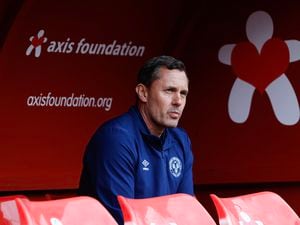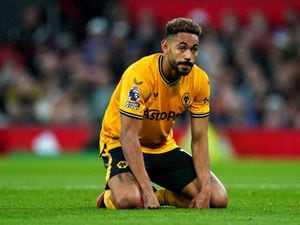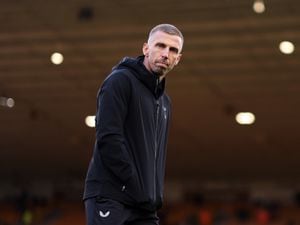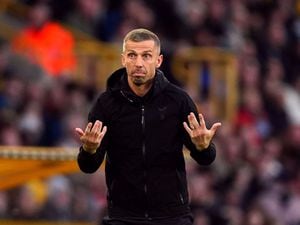Big Interview: Brian Little, an Aston Villa legend
When Brian Little claims to have experienced life at Aston Villa from every conceivable angle, he really isn’t kidding.
Trawl through Villa’s 145-year history and you probably won’t find anyone else who has served the them in so many different roles, whether it be on the pitch, in the dugout, in the boardroom, or even in the club shop.
It was in the latter, incredibly, where Little found himself in 1980, just a short while after his retirement from playing at the age of just 26.
“When I finished playing I went and worked in a printing company for three months and absolutely hated it,” he explains.
“So I went and rang the lads in the club shop and asked if I could work there. They said yes.
“I used to go round pubs selling the lottery tickets. We had agents from whom we would go and collect money too.
“I drove round in a claret and blue Mini Metro with the words ‘Aston Villa Developments Association’ printed on the side of it.
“I can’t say I really enjoyed it but it was better than the print company. And at least I was back working in football.”
Though the notion of a player with 300 first-team appearances under his belt turning up to work in the club shop might unthinkable by today’s standards, Little’s situation was hardly unique in an age when even celebrated stars had to take serious consideration to life after retirement.
In Little’s case, it only further adds to his status as a Villa institution.
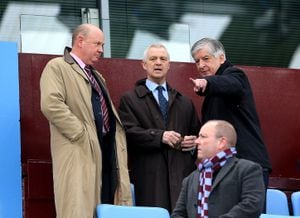
His relationship with the club, which will this year hit the half century mark, has not been a continuous one. There have been other, celebrated chapters of his career spent elsewhere.
Yet it is always to Villa he has found himself returning, whether it be as youth team coach, manager and latterly advisor to the board. The connection he first felt as a 15-year-old apprentice, having travelled 200-miles from his north-east home, remains stronger than ever.
“It is a true story, the day I saw Aston Villa and went to the club, I wanted to sign for them,” he says.
“I knew there and then if they offered me an apprenticeship, I would go. They did and I did. There it started.”
It is a relationship which has been mutually beneficial. Little, still regarded as among the club’s most gifted ever players and the last Villa manager to lift a major trophy, remains revered among supporters.
Plenty have turned out on the night we meet in a quiet corner of Warwickshire, for the official launch of his autobiography, A Little is Enough, which charts his life in football, from the early days at Villa, right through to his final managerial job in charge of the Jersey national team in 2016.
“Sometimes you just think it would be nice to sit down and go through it all,” says Little.
“The last couple of years things have quietened down quite a lot. It just seemed like the right time to do it.”
One of the most intriguing stories regarding Little is how he ever came to play for Villa at all. It’s not like he was a local talent, having been born within a mile of Newcastle United’s St James’s Park.
The Magpies were, understandably, one of several clubs to offer Little a trial after watching him play for East Durham Boys, as did Leeds United, Manchester City, Burnley and also Port Vale whose general manager, the great Stanley Matthews, was very keen for him to join.
“Villa were very much last on the list,” he said. “Their assistant manager at the time, Malcolm Musgrove, was related to my mom’s side of the family.
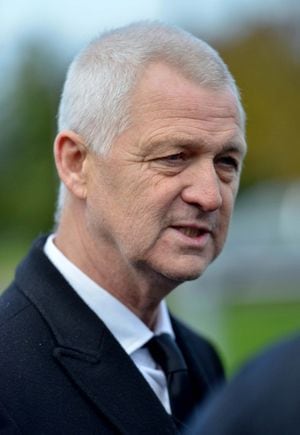
“For whatever reason someone was talking to him when he was back in the north-east and told him: ‘Our Brian is doing really well, you need to have a look at him.’
“A scout from Villa came to watch me and the next thing I was invited to Villa Park.”
The club Little first set eyes on was one at its lowest ever ebb, struggling both financially and on the pitch, sat near the foot of the Second Division and soon destined for the Third.
“But there was just an aura, something about it, the whole set up of the place,” he says. “I always had a dream of going there.
“At 15, I wasn’t a top player, I was asked by Leeds and Manchester City but I was worried about going there. I didn’t feel as comfortable there.
“I just liked it at Villa. There was something about it I liked. It was my choice. My mom and my dad both backed me.
“They dropped me at Durham station and waved goodbye. I had £1 1s in my pocket, not knowing who was meeting me at the other end, where I was going.
“These days, of course, it would all be completely different. But it all turned out well.”
Villa’s relegation in 2016 brought renewed focus on their previous, brief spell in the second tier in the late 1980s, together with the reminder that demotion occurred just five years after lifting the European Cup.
Yet even more extraordinary, if too often forgotten, is the turnaround which took place before that night in Rotterdam, of which Little played a huge part.
“The first season I was with Villa they were relegated to the Third Division, for the first time in their history,” he said.
“Just 12 years later they won the European Cup. That is one hell of a journey, which took place very quickly.
“Through much of my time playing at Villa Park we would regularly get crowds of 50,000. It really was an incredible place to be.”
In total, Little would score 82 goals in 302 appearances over the course of the decade, netting 20 during the 1974-75 season when Villa won promotion back to the First Division under Ron Saunders.
There were two League Cup triumphs, Little netting two - including the winner - in the famous 1977 final second replay victory over Everton at Old Trafford. Earlier that season, he had also been on the mark in a 5-1 thumping of Liverpool, on arguably one of Villa Park’s most famous nights.
It has always seemed particularly cruel, then, that a player who did so much to lay the foundations for the club’s greatest success ended up missing out on the moment itself.
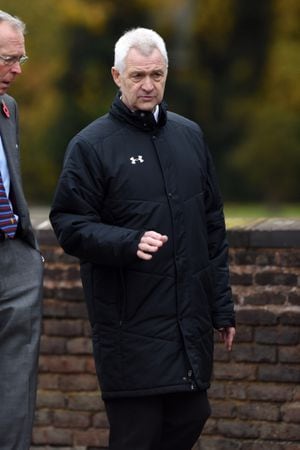
When Villa ended a 71-year wait for the league title in 1981 and then lifted the European Cup a year later, Little was already retired, a back problem having prevented a move across the city to Blues in 1979, before a knee injury sustained late in 3-1 defeat Wolves in March 1980 eventually proved too much to overcome.
“When Villa won the league I was in Guernsey, with the supporters club down there,” he said.
“To be honest it was just something you accepted. The players were my mates, they are still my mates. I was pleased for them.
“But I did not sit and sulk. I just got on with it. My knee was gone, my back was gone. There was nothing which could be done. I tend to take setbacks quite well, as a person.”
Little’s Villa story, as we know, did not end there. After a few months working in the shop, he was offered the role of youth team coach, beginning a career in the dugout which would see him guide Villa to League Cup glory in 1996.
Most recently, his journey has taken him to the boardroom where, since 2016, he has taken on the role of advisor.
Once again, with Villa in hard times, Little is doing what he can to help.
“I don’t think I have a great influence, or impact. But I have managed to get on with each of the managers and tried to be a friend to them, more than anything,” he said.
“When I left home at 15 I was quiet and shy. Now I tend to talk an awful lot!
“I think I can give a fairly decent view of what is going on, having been in most situations myself.
“Hopefully, just little odd words help in a small way. I can look at the game now and reflect on most things and say yeah, been there, seen that, done it.”
A Little is Enough, written with Simon Goodyear, is available to buy at brianlittleofficial.com

